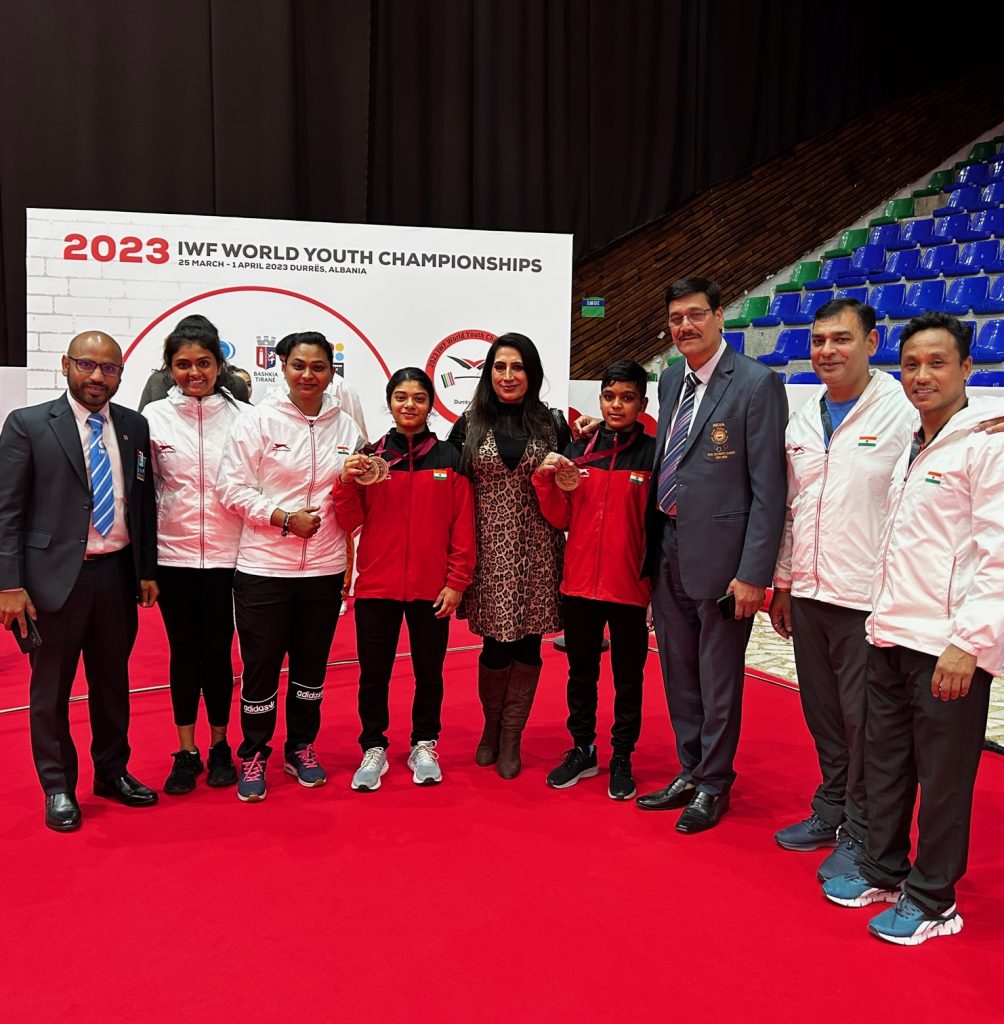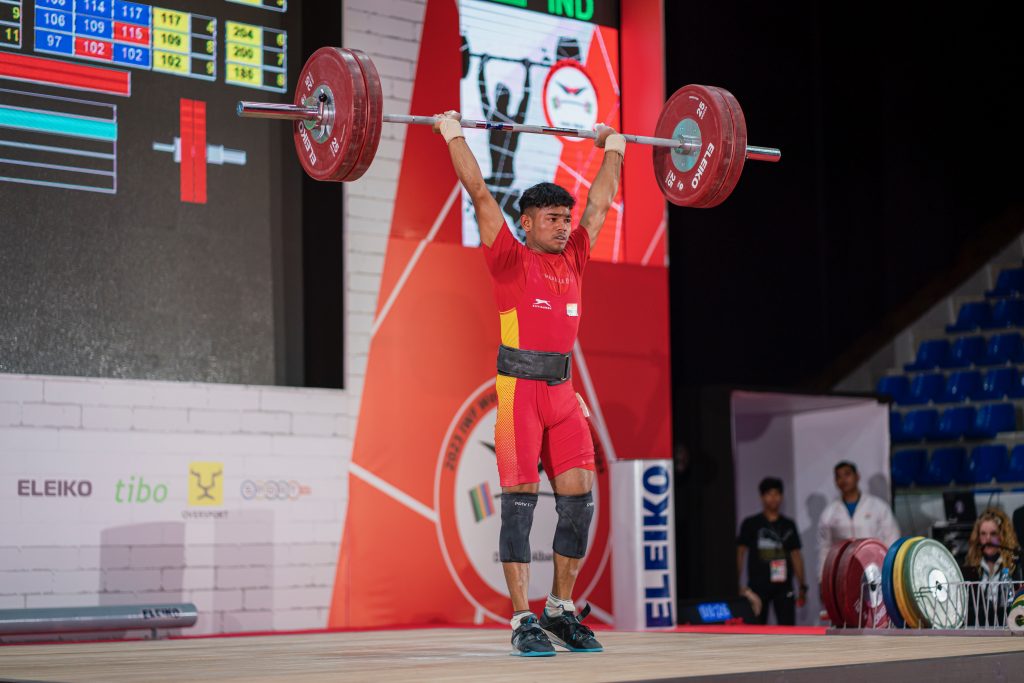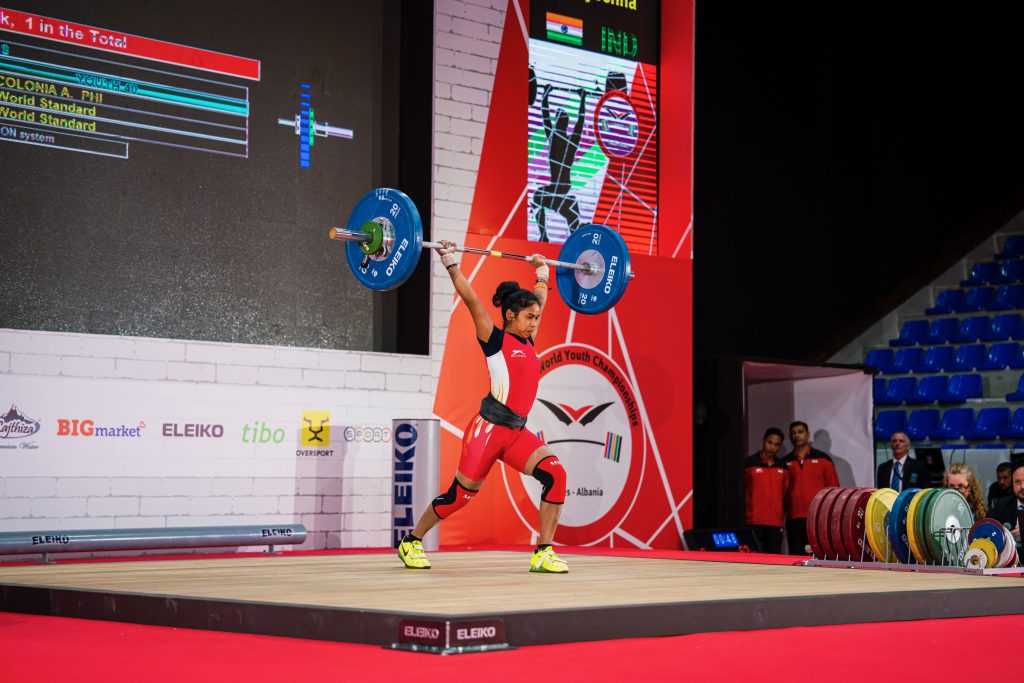Building a renewed weightlifting in India
India is one of the best-represented nations in terms of athletes at the IWF World Youth Championships, having brought 13 athletes to Durres (ALB). At the end of the second day of competition, the Asian powerhouse has already collected 12 medals (four silver, eight bronze) and more are expected to come.
With a long and successful tradition in weightlifting, India went through some turbulent moments in the past, namely due to an excessive number of doping cases. This challenging period is now part of history and those responsible for the country’s national weightlifting federation are determined to change not only the image but also the overall development of the sport.

Leading the Indian delegation in Albania, Sahdev Yadav, the President of India’s governing body, is a happy and confident man. “We are definitively putting a lot of effort into educating and teaching our youth about the problems related to doping. We want a clean sport in India. We had some problems in the past, but the present and the future are definitively different. We are staging a lot of seminars and educational programmes for our children. Many of our athletes come from less-favoured families, they don’t have a lot of education, so this effort is needed from our side,” admits Mr Yadav.
Speaking about the national development plan for weightlifting, the Indian leader explains: “Our political authorities are doing their utmost to provide us with development platforms for our youth and children around the country. There is a national programme aimed at developing the sport in the schools and children are benefitting from it. We have also a programme for talent detection and many schemes are coming up, especially in women’s weightlifting”.

A major priority for Indian Weightlifting Federation is precisely to guarantee a sport-balanced sport. “The prime-minister has made mandatory a 50-50 participation in sport, so this has helped a lot. At our level, we are developing very fast, not only in terms of athletes, but also with officials and coaches. The lifters are getting a lot of motivation from these programmes and we are very optimistic about the future of weightlifting in our country. Parents in India should now say to their daughters to join the sport!” he continues. “Women in our country are not confined to four walls anymore – now they are ambitious and career-oriented. Over the last 10 years, the budget and the number of competitions has also dramatically increased, so conditions are now more favourable for positive development,” Mr Yadav adds.
At the elite level, a pivotal moment of change occurred at the Tokyo Olympics, when Chanu Saikhom Mirabai won the silver in the women’s 49kg category, one of the two medals for the country in the sport at the Games’ level (the other one being a bronze in Sydney 2000, also among women). “We expect to qualify three lifters for the Paris 2024 Olympics and get a medal – a gold from Mirabai. She is preparing very hard and will be in great shape next year in France”.

Reflecting on the performances of the youth national team in Albania, the Indian responsible aims for more successes in the upcoming days: “We are of course expecting more medals in other categories. But whatever happens, we are really happy with the performances so far, as for many of them this is their first international competition. Seeing them climbing on the podium is a great satisfaction for us. We are doing well!”
After this European stop, the priorities for the Indian team are the Asian Championships, taking place in Jinju (KOR) from May 3-13, and the IWF World Championships, scheduled for September 2-17 in Riyadh (KSA). Between these two major rendezvous, New Delhi will stage for the first time the Commonwealth Championships in weightlifting (at youth, junior and senior level) from July 12-16. “This is of course a very important opportunity for our lifters and for the progress of the sport in India,” concludes Mr Yadav, also Vice-President of the Commonwealth Weightlifting Federation.
By Pedro Adrega, IWF Communications










